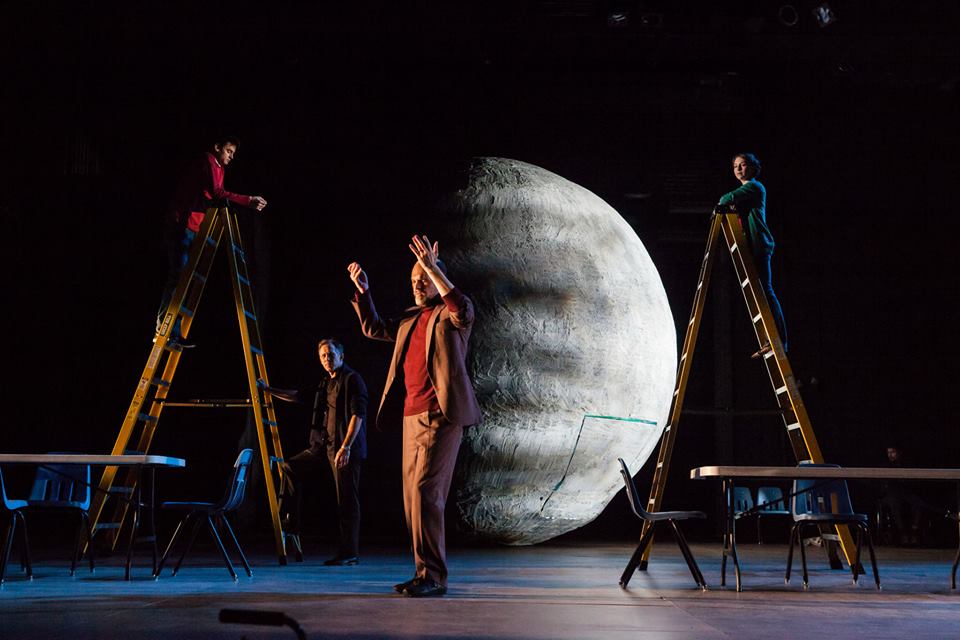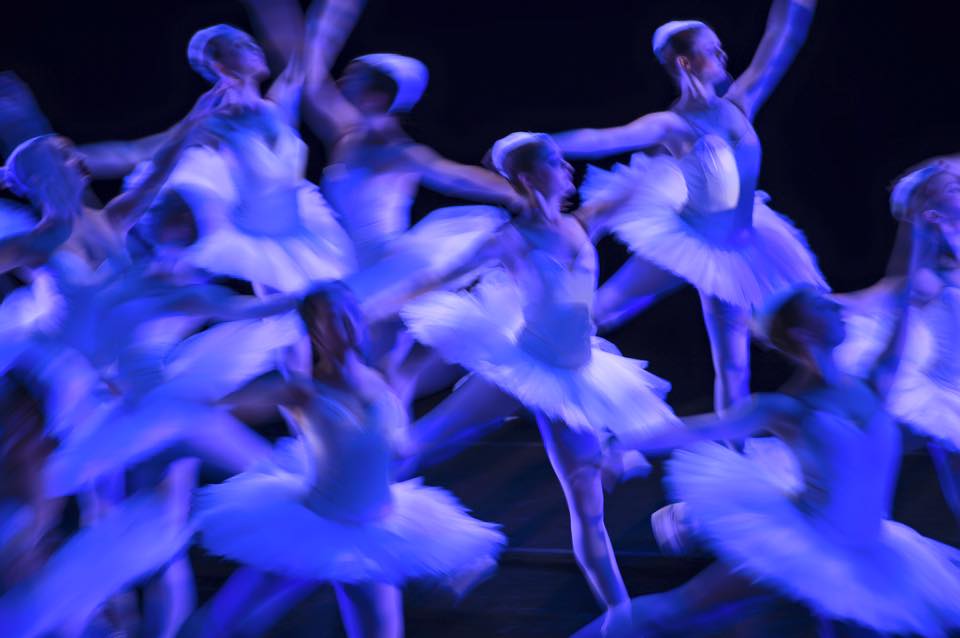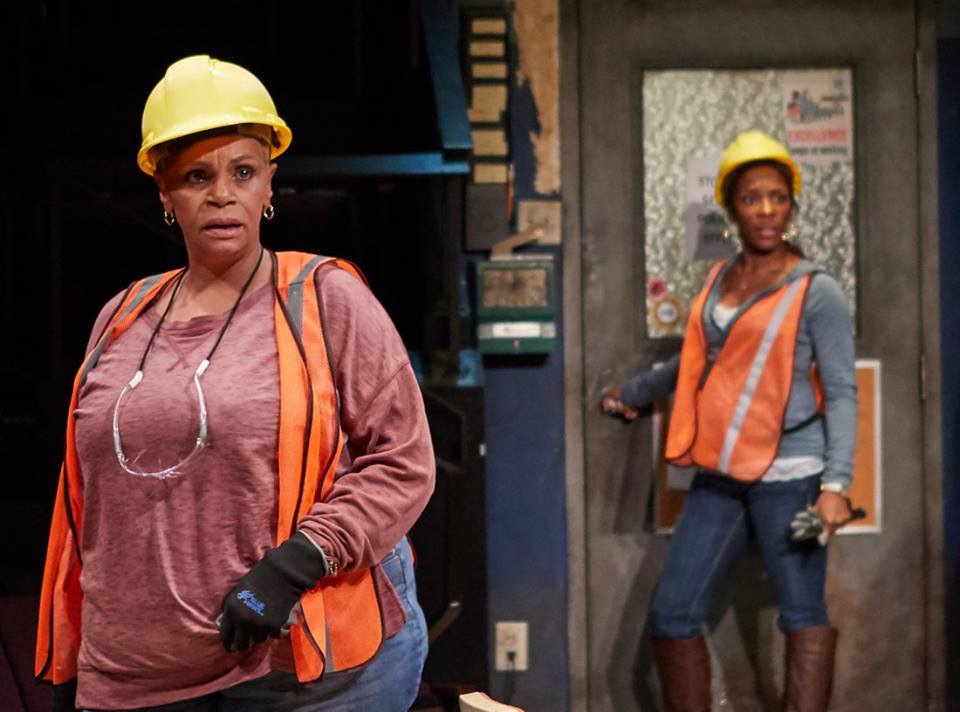David McElwee, Bruce McKenzie, Gregory Maupin and Rebekah Brockman in Our Town. Photo-Bill Brymer.
Our Town
By Thornton Wilder
Directed by Les Waters
Review by Keith Waits
Entire contents copyright 2014 by Keith Waits, all rights reserved.
A mainstay on American stages since its premiere in 1938, Thornton Wilder’s Our Town has only become more resonant with each passing year. I have encountered it many times, and it never grows stale. Director Les Waters’ new production reminds us just how powerfully the play speaks to the bedrock American identity.
It might seem somewhat quixotic, since the text establishes a very particular white Protestant community in a fashion that would invite the embrace of red-meat conservatives in the current cultural climate, but the contemporary costumes and multiracial cast help break down some of the period details so that the community is more accessible. The characters may go through the paces of early 19th-century life in the small New England town of Grover’s Corner (horse drawn milk deliveries and soda shops) but we easily see ourselves onstage, and the Stage Manager’s ruminations on marriage, mortality and spiritual life come across as very modern here. If you don’t hear his observation that we were meant to be joined in two’s and not consider the ongoing social discourse about the meaning of marriage, you must be living under a rock.
Fealty to the script is maintained except for a few interesting updates. Howie Newsome is deaf, and interacts with the other characters by signing, while Mr. Webb occupies a wheelchair. No explanation is offered, but clearly the intent is to create a society onstage that more accurately reflects our own. The settings and props are even more minimalist than is typical, yet, again, striking exceptions are made. Most notably, a giant, rotating moon serves as backdrop for the extended first act scene that features teenage George and Emily talking across the distance between their two houses. It should play as overkill, but somehow the oversize lunar orb casts the appropriate dreamy spell for these moments.
Most importantly, a very strong ensemble consistently hews close to the truth of each scene. Gregory Maupin as the bitter, alcoholic Simon Stimson and Michael Patrick Thornton as a soulful Mr. Webb both brought subtlety and feeling to familiar characters, while David McElwee and Rebekah Brockman beautifully realized George and Emily as the tender heart of the play. Best of all is Bruce McKenzie as the Stage Manager. With estimable control and understated authority, he connects each point and nuance to the audience, discovering with precision every opportunity to invite our empathy, understanding and identification. The thoughtfulness and deliberation of the performance make this a particularly philosophical rendition of the character.
Our Town’s famous metatheatrical techniques no longer strike us as novel, and the surreal aspects are essential to the play’s emotional impact, but why it is exponentially relevant may be that it grounds us with a fundamental cultural identity that is increasingly important as we lose ourselves in technology. The information age and the resulting disconnection from humanity that affects our society only reinforces our need for the feelings of community and sense of place. When the Stage Manager speaks about how everybody knows something about everybody else in Grover’s Corner, the observation lacks any violation of privacy. Instead it underscores the degree of compassion and respect characterizing all of the relationships we witness onstage. Thornton Wilder may never have imagined such a world, but the universality of his play insures that we will always need to return to the world he created.
Our Town
January 21 – February 9, 2014
Actors Theatre of Louisville
Pamela Brown Auditorium
316 West Main Street
Louisville, KY 40202
(502) 584-1205





